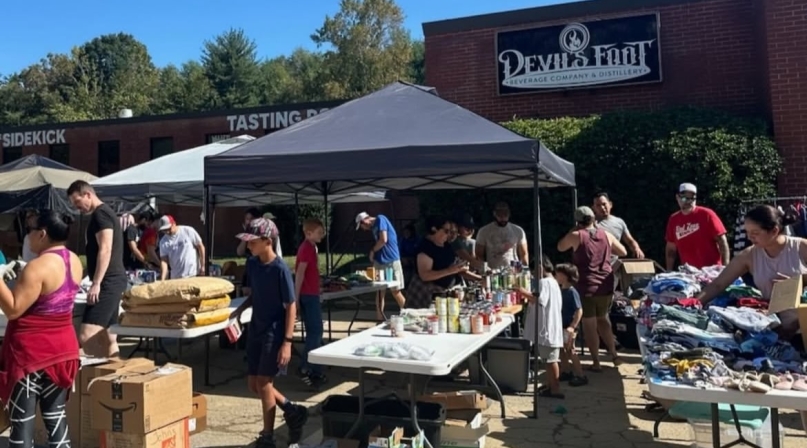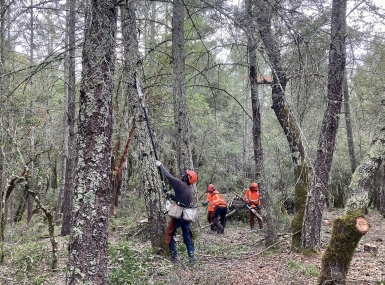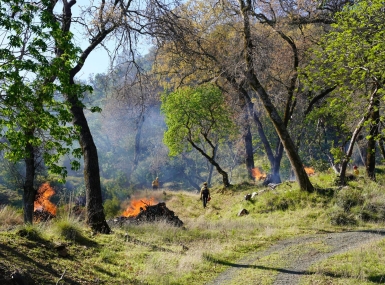Author

Meredith Moran
Upcoming Events
Related News

Three months after Hurricane Helene devastated Buncombe County, N.C., the power is back, the water is potable and the county is now working to salvage the local economy by helping keep small businesses afloat and participating in the Western North Carolina tourism initiative: “Our Best Way to Get Back Is for You to Come Back.”
Last year marked a record high in tourism revenue for Buncombe County, with visitors spending nearly $3 billion in the county on lodging, retail, food and beverage, transportation, recreation and entertainment. The county was on track to surpass that number this fiscal year, but tourism losses in the fourth quarter following Helene are estimated to reach 70%, resulting in a hit of roughly $585 million to the local economy, according to Buncombe County Tourism Development Authority data.
“Looking through the rear-view mirror is very painful for many reasons, for many members of our community, in business and in life,” said Victoria Isley, president and CEO of the Buncombe County Tourism Development Authority, at a Nov. 21 meeting. “So, thinking through the windshield and starting to look through recovery and how we do that together, I think is really important for us to stay committed and stay with each other as we go through these times, because it will be up and down, and we want more ups for sure.”
Tourism helps boost county budget
The county Tourism Development Authority is working with Visit North Carolina on a marketing campaign “Our Best Way to Get Back Is for You to Come Back,” which is leaning into agritourism — with plans to advertise the area’s wineries in the warmer months, according to Scott Peacock, Visit North Carolina’s tourism marketing and communications director.
“We’ve been working with national media outlets since day one, as well as local and in-state,” Peacock said. “We even took our adversaries and our foes and decided, ‘If you can’t beat ‘em, join ‘em,’ so we agreed to do an interview with The Weather Channel, since Jim Cantore wouldn’t agree to quit standing in puddles and making them look like lakes on air,” he added, with a laugh, at the Nov. 21 meeting.
Visitors contribute 20% of Buncombe County’s economy, and the county receives roughly $48 million a year in sales tax to its general fund.
While some of the more rural parts of the county are still in the beginning of the recovery process, it’s important for the county to make tourism a priority again, because without those dollars, the county’s infrastructure that it funds, such as its schools and fire departments, will suffer, according to Buncombe County Manager Avril Pinder.
Without tourism, ‘that economic engine isn’t there’
“There are pockets of disaster, and pockets that you wouldn’t even know a storm came through,” Pinder said. “Ten miles from here in a rural part of the county, where the river was normally a little old babbling brook, that river was 20 feet above the normal stage of where it is [during Helene], and that wiped out several homes along the river, so we would not want to say, ‘Hey, come back and see,’ because it feels as if you’re looking at people in their weakest moment.’
“People are wondering, why are we advertising and spending money on tourists when we’re hurt so much? But if you were to drive just 10 miles from that location, you see back a very vibrant downtown.
All the buskers are back on the corners, the music is playing again. Without the tourism, without the people coming back into downtown, that economic engine isn’t there, and that’s a huge part of our revenue base as well to help provide the same services that they’re asking for out in the county.”
To help tourists find areas open to the public, Visit North Carolina created a map which includes highway advisories and a color-coded system that shows where each county and town is in the recovery process. Green spots on the map are welcoming visitors, yellow have limitations and red are closed to visitors.
The Buncombe County Tourism Development Authority is targeting tourism efforts regionally toward visitors within driving distance, so that alternative routes into the county can be highlighted, as the area is at varying levels of recovery, according to Dodie Stephens, Explore Asheville’s vice president of marketing. Marketing efforts are centering on being a “part of the comeback” with the message of helping Asheville rebuild, she said Nov. 21 at the Tourism Development Authority Board meeting.
“Asheville is speaking from a very personal place, which we think resonates well at this time,” Stephens said.
Funding help
Small businesses, which make up 96% of all businesses in Buncombe County, were hit hard by Helene. Devil’s Foot Distillery, which lost roughly four weeks of revenue due to Helene, is one of more than 300 small businesses receiving funding through Buncombe County and the city of Asheville’s joint “Always Asheville” emergency microgrant fund, which was created to help small businesses get back on their feet following the hurricane.
Buncombe County is also providing individual and rental assistance to keep workers in the community. More than $80 million has been distributed, according to Pinder.
Since Helene, Ben Colvin, the founder of Devil’s Foot Beverage, has filed four loan applications, five insurance claims and 13 grant applications — applying for assistance to keep Devil’s Foot Distillery running has become a “second job” of sorts for him, he said. The business is receiving $5,000 through Always Asheville.
“It’s a drop [in the bucket], but it’s helping us all see a bright light on this and feel supported,” Colvin said.
“In a lot of this, you start feeling a little bit like we’re forgotten, and you’re waiting on, whether it’s insurance or government support or whatever, these bureaucratic processes take forever, so who’s going to be fast? Who’s going to be resilient and quick and smart and efficient to be able to get funding out to people?”
“This [fund] in particular was well targeted to a lot of the customer-facing, visitor-facing, interactive businesses that are ‘the buzz’ of Asheville and need to not only survive but thrive to really continue to build the culture of this town and show people what we are.”
Related News

County Countdown – April 21, 2025
Every other week, NACo's County Countdown reviews top federal policy advocacy items with an eye towards counties and the intergovernmental partnership. This week features the ARPA reporting deadline, a budget reconciliation update and more

FEMA halts disaster mitigation grant program
On April 4, the Federal Emergency Management Agency (FEMA) announced it will not allocate $750 million this year for the Building Resilient Infrastructure and Communities (BRIC) grant program. According to the press release, FEMA will also stop funding BRIC projects that were previously approved and are still underway.
County News
Counties dig out from deadly Hurricane Helene
Counties have been coordinating shelters, food and water distribution, information and making efforts to vet or refer people to donation managers in the wake of Hurricane Helene's devastation across six states.

